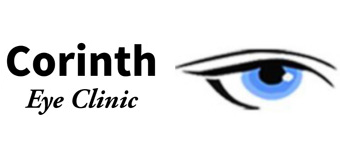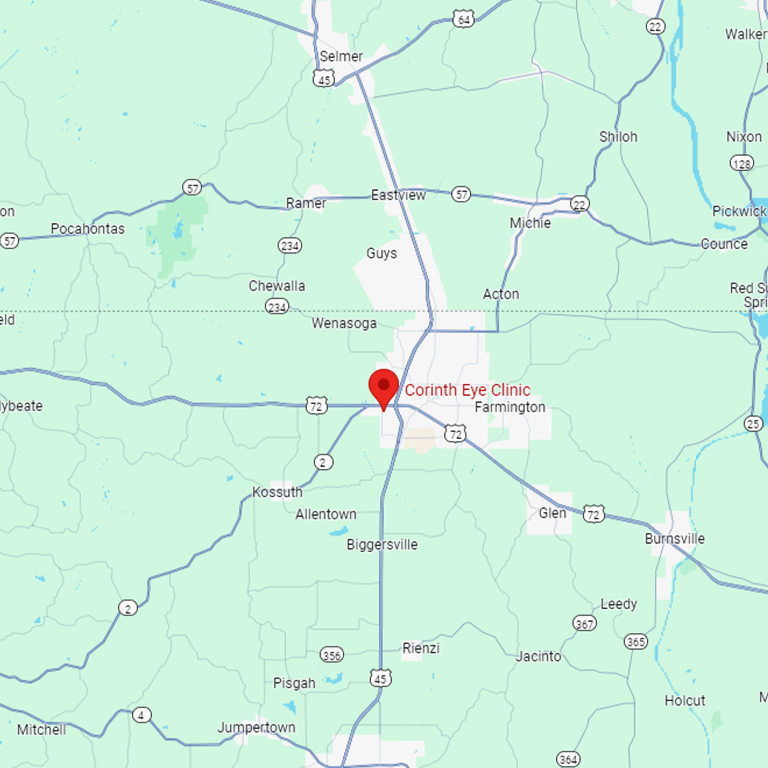Pediatric Eye Exam
 The American Academy of Pediatrics recommends that all babies have a pediatric eye exam in Corinth, MS, by the time they are six months old. The reason for examining your infant’s eyes so early is to ensure normal development. Your child should have one more eye exam between the ages of two and three and then an annual appointment between ages three and six.
The American Academy of Pediatrics recommends that all babies have a pediatric eye exam in Corinth, MS, by the time they are six months old. The reason for examining your infant’s eyes so early is to ensure normal development. Your child should have one more eye exam between the ages of two and three and then an annual appointment between ages three and six.
School-aged children should visit us every other year, at ages eight, 10, and 12. Teenagers typically only need one exam between the ages of 13 and 18 unless they have known visual difficulties or eye health issues.
These Medical Conditions May Affect Your Child’s Eye Health
Various congenital conditions, which are present at birth, can impact their eye health and visual clarity. The most common ones include:
- Brain or eye trauma
- Certain genetic and neurological conditions
- Conditions that impact eye development
- Congenital cataracts or other issues that cause lazy eye
- Exposure to growth hormones and certain other medications
- Pre-birth exposure to certain types of infections
- Premature birth
Although it can be challenging to know whether your infant has an eye or vision problem, we recommend observing your child for these symptoms:
- Any eye movement that seems unusual
- Droopy eyelids
- Eyes do not follow objects in an even pattern
- Eye pain and/or redness
- Gray or white color in your baby’s pupils
- Light sensitivity
- Misaligned eyes, which may present as cross-eyes or eyes that turn outward
Healthy infants should be able to focus and track moving objects between two and four months of age. Between five and eight months, your baby has developed better depth perception and should be able to reach for nearby objects. Most babies recognize their parents by this age and respond by smiling and cooing, even when they are across the room.
By nine months, babies have improved their ability to judge distance and begin pulling themselves up on furniture to help them stand. Infants usually begin walking between 10 and 18 months old. Unfortunately, an undiagnosed vision problem can cause physical and cognitive delays in your child.
What to Expect at Your Child’s Pediatric Vision Exam
The procedures your child’s optometrist performs depend on their age and level of understanding. For example, an optometrist at Corinth Eye Clinic tests color vision, depth perception, and eye-focusing ability for children between six months and 24 months old.
Our optometrist will briefly shine a light into your child’s eyes to check pupil responses. Another test involves moving an object from your baby’s face at various distances. The purpose is to test their ability to fixate their gaze, reach for the object, or follow it with their eyes.
Two to five years old
The exam for older toddlers and preschoolers looks a bit different. Below are several things you can expect our optometrist to look for during your child’s comprehensive preschool exam.
- 3D vision
- Color vision
- Lazy eye
- Overall eye health
- Uneven eye tracking between the two eyes, known as convergence insufficiency
- Visual acuity
Parents sometimes assume their child has a developmental delay when they have a vision problem instead. Correcting the issue before your child starts school is critical for their future academic progress.
Reach Out to Request an Appointment
We invite you to schedule a pediatric eye exam in Corinth, MS, at your convenience. When contacting us, please let us know if you need a routine or urgent appointment.


